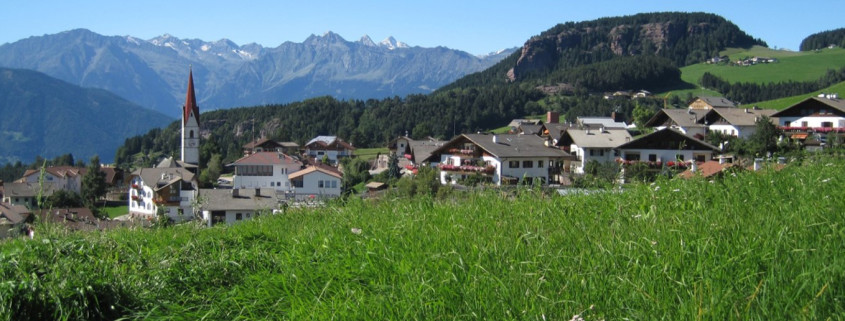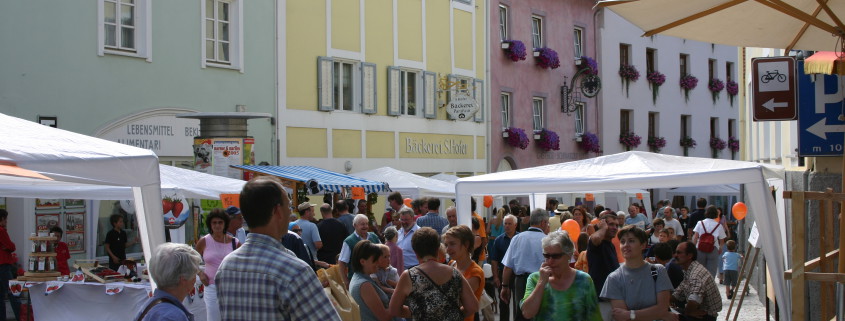of Plattform Land to strengthen the rural area in South Tyrol
As partner, motivator and facilitator, Plattform Land supports all actors in rural areas with sustainable and implementation-oriented initiatives. To this end, it intends to link actors as well as to initiate and support necessary processes and projects. The guiding principle of Plattform Land is to help people to help themselves. It therefore promotes and strengthens local initiative and the participation of the local population and decision-makers in implementation. The strategic task is to strengthen and sharpen public awareness for the concerns of rural areas. Plattform Land pursues a partnership-based and holistic approach in order to meet the complex current and future challenges and to maintain the quality of life in rural areas.
In doing so, the economic and living space of South Tyrol must always be seen as a unity with urban and rural areas. Only an economic policy that is oriented towards the needs of urban and rural areas can be successful for South Tyrol in the long term.
The rural areas are under great pressure to adapt. Due to demographic and economic structural changes, spatial conflicts of interest must be resolved and, in particular, future prospects for the young population must be developed. At the same time, entrepreneurial competitiveness must be maintained by a targeted valorisation of the existing local potentials, taking into account social and economic developments.
In order to preserve the function and vitality of the rural communities, the main towns in the valley communities play an essential role. They are to be supported in maintaining the services and offers of general interest for the surrounding communities in the sense of subsidiarity. Furthermore, advisory and further training measures for professional qualification of the actors and innovative entrepreneurship are to be promoted.
The following recommendations for action combine the expertise of the Advisory Council “Rural Areas” of Plattform Land and the statements of selected actors and experts who were interviewed about the most important challenges in rural areas..
RECOMMENDATIONS FOR ACTION FOR A SUSTAINABLE AND RESILIENT STRENGTHENING OF RURAL AREAS
1. COOPERATION AND NETWORKING
Improve the social, economic and legal framework conditions for implementation-oriented cooperation and partnerships within the same sector and across sectors in order to increase added value:
- Demand and promote intermunicipal and urban-rural partnerships to a greater extent
- Give preference to economic and cross-sectoral networks in projects
- Stronger support for intergenerational social cooperation involving voluntary work and associations, intelligent management of immigration and use of the opportunities offered by the cooperative system, also with regard to citizen participationGive preference to economic and cross-sectoral networks in projects
2. DECENTRALISED SERVICES OF GENERAL INTEREST
Strengthen decentralised services and public services of general interest in small and medium-sized centres and keep political groups alive
- Expand fast Internet quickly and nationwide
- Establish multi-functional service centres (service points) for local supply and social services (e.g. food, postal and parcel service, child and elderly care) with the use of village shops, inns and craft enterprises
- Introduce a voucher system for families with children for cultural and sports activities
- Intelligent expansion of local public transport and maintenance of the rural road network
3. DECENTRALISATION
Relocate central services and facilities to rural areas:
- relocate parts of the public administration and services to the valley communities
- Survey vacancies in residential and commercial real estate and enhance their value through internal development
- In this context, the advantages of rural areas (soft location factors, availability of land and real estate, price level) must be taken into account and marketed more effectively in order to relieve the burden on urban centres.
- Business settlements and expansions in rural areas, with preference given to inner development, promote
- Strengthen local cycles and the competitiveness of local companies through unbureaucratic decentralised awarding of contracts
- Maintaining decentralised education and training structures
4. SUBSIDIARITY
Strengthen municipal autonomy and the ability of municipalities to make their own decisions, also in financial terms:
- Bureaucratic hurdles are to be removed (introduction of a single counter for regional development projects)
- Increase financial incentives and support for sustainable development projects such as energy communities
5. ENTREPRENEURSHIP
Promoting the competitiveness and viability of farms:
- Further develop both activities and initiatives for the creation or expansion of competence centres, network formation, cooperation between research and industry, investment in research and development and financial incentives
- Targeted promotion of start-up companies in rural areas and compensation of locational disadvantages through appropriate support
- Develop new offers thanks to entrepreneurial creativity by promoting exchanges and awareness-raising events
6. CULTURAL LANDSCAPE AND NATURAL RESOURCES
To use and protect outstanding and characteristic elements of the natural and cultural landscape in a sustainable manner and to ensure the quality of the habitat:
- Provide enough funds for monument and ensemble protection, landscape conservation and environmental programmes
ADDITIONAL REQUIREMENTS
- For a sustainable and resilient development of rural areas, a regionally and supra-regionally closely networked and diverse economic structure is to be aimed for.
- An interdisciplinary, holistic and coordinated approach on the part of political decision-makers is therefore important in order to master the rapidly changing challenges in the long term.
- Structurally strong and weak areas must be defined in order to take appropriate and coordinated measures in a targeted manner.
- In order to measure and assess developments and progress (regional check), objectives and benchmarks for monitoring must be developed and a regular review of governance must be provided for.
- A continuous adaptation of strategies and measures is to be implemented through innovative approaches with the people on the ground. Scientific studies serve as a sound basis for support.
- Rural development policy must be coordinated with the regional support instruments and, in particular, with the various EU funds.
- The immediate implementation of suitable pilot projects in the fields of sensitisation, education, advice and participation must now be tackled step by step, involving local decision-makers and the population, in order to turn words into deeds.



